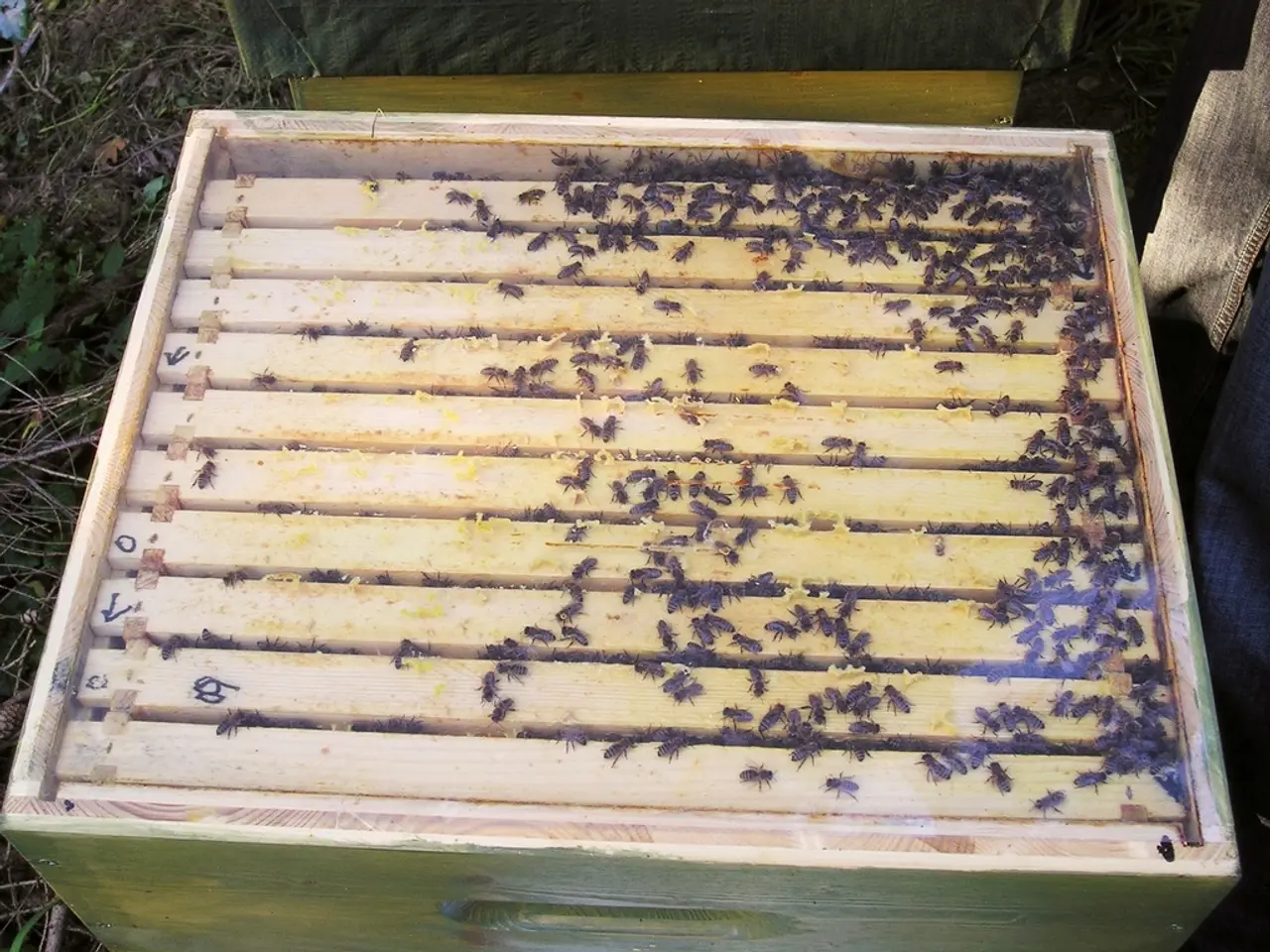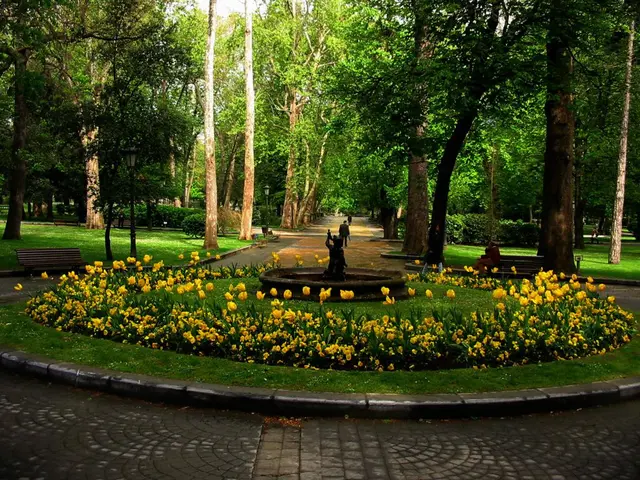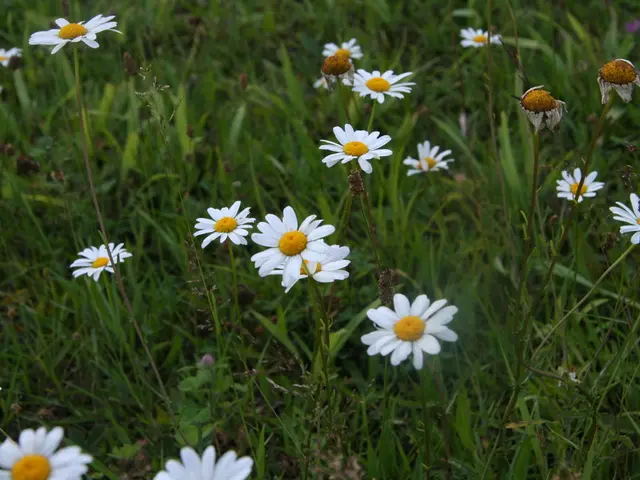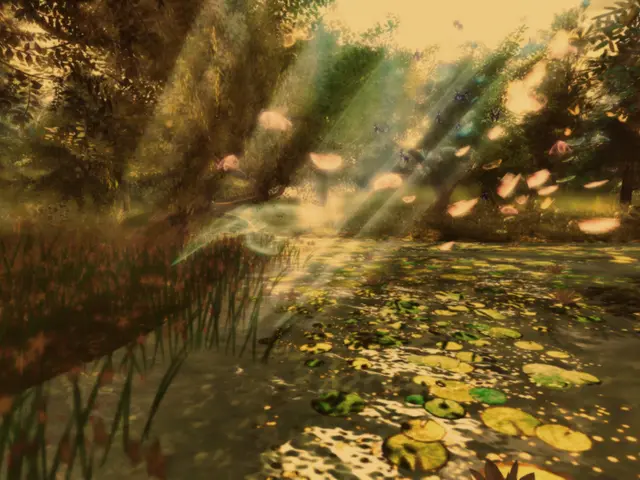Creating Shrub Gardens Attractive to Insects: A Guide
**Transforming Gravel Gardens for Biodiversity: A Guide for the Rheinisch-Bergischer Kreis**
In an effort to promote sustainable gardening and support local ecosystems, the Rheinisch-Bergische District is hosting a series of workshops aimed at redesigning gravel gardens to benefit biodiversity. The workshops, held in collaboration with the Bergische Agency for Cultural Landscape, will take place on three Fridays between September 15 and October 24, from 5 PM to 7 PM.
Gravel gardens, once popular as an alternative for front gardens, have fallen out of favor due to issues such as their lack of insect-friendliness, inability to absorb heavy rain, and significant heating during hot summer months. However, these concerns can be addressed with a few strategic changes.
**Boosting Biodiversity with Sustainable Design**
One of the key strategies is to choose native plants that are well adapted to local soil and climate conditions. These plants support local wildlife and pollinators naturally. By incorporating a variety of flowering species, participants will provide nectar and habitat diversity.
Reducing traditional lawns by replacing them with rain gardens, groundcovers, or drought-tolerant plants helps conserve water and enhance ecological resilience. Using permeable surfaces and recycled materials in gravel paths and hardscapes encourages water infiltration and minimizes runoff.
Incorporating features such as small ponds, bee hotels, bird feeders, and nesting boxes attract beneficial insects, birds, amphibians, and other fauna. Avoiding chemical pesticides and fertilizers and building healthy soil with compost and mulch creates a nutrient-rich environment that supports diverse organisms.
**Low-Maintenance and Smart Water Management**
Gravel gardens are inherently low-maintenance, replacing high-water turf with drought-tolerant plantings that reduce mowing and irrigation needs. Using smart irrigation technologies like moisture sensors and automated controllers optimizes watering schedules and reduces water consumption by up to 50%.
Applying slow-release organic fertilizers only during growing seasons improves plant health while reducing soil pollution. Seasonal care includes pruning in spring, clearing in fall, and protecting plants in winter to maintain a healthy landscape with minimal effort.
**Participating in Workshops**
Those interested in redesigning their gravel gardens can participate in local workshops offered by environmental groups, botanical gardens, or community centers within the Rheinisch-Bergischer Kreis. These workshops often cover native planting, wildlife gardening, and sustainable landscape design. Participation provides hands-on experience, connects participants with experts, and helps apply best practices tailored to the local environment.
Workshops may also offer opportunities to collaborate on community garden projects or biodiversity initiatives, fostering local environmental stewardship. Registrations for the workshops can be made by July 31 via email or phone. Workshop locations will be announced in due time.
By implementing these approaches, your redesigned gravel garden in the Rheinisch-Bergischer Kreis will actively benefit biodiversity, conserve resources, and align with sustainable gardening principles. Engaging in local workshops will further enhance your knowledge and community impact.
Partnering with environmental groups in the Rheinisch-Bergischer Kreis, the workshops will educate participants on methods to transform gravel gardens into thriving havens for wildlife. By selecting native plants and diversifying flowering species in these redesigned gardens, we foster biodiversity and support local pollinators.
When incorporating rain gardens, groundcovers, and drought-tolerant plants, we not only conserve water but also enhance ecological resilience in the region. Additionally, using permeable surfaces and recycled materials in gravel paths and hardscapes helps minimize runoff and promotes water infiltration, following principles of environmental-science.
Upon completion of the workshops, individuals can return home and make their own home-and-garden spaces more sustainable by applying the techniques learned, thus contributing to the collective effort for climate-change mitigation. Engaging in these practices not only improves the local environment but also leads to a more insect-friendly and eco-friendly lifestyle.








